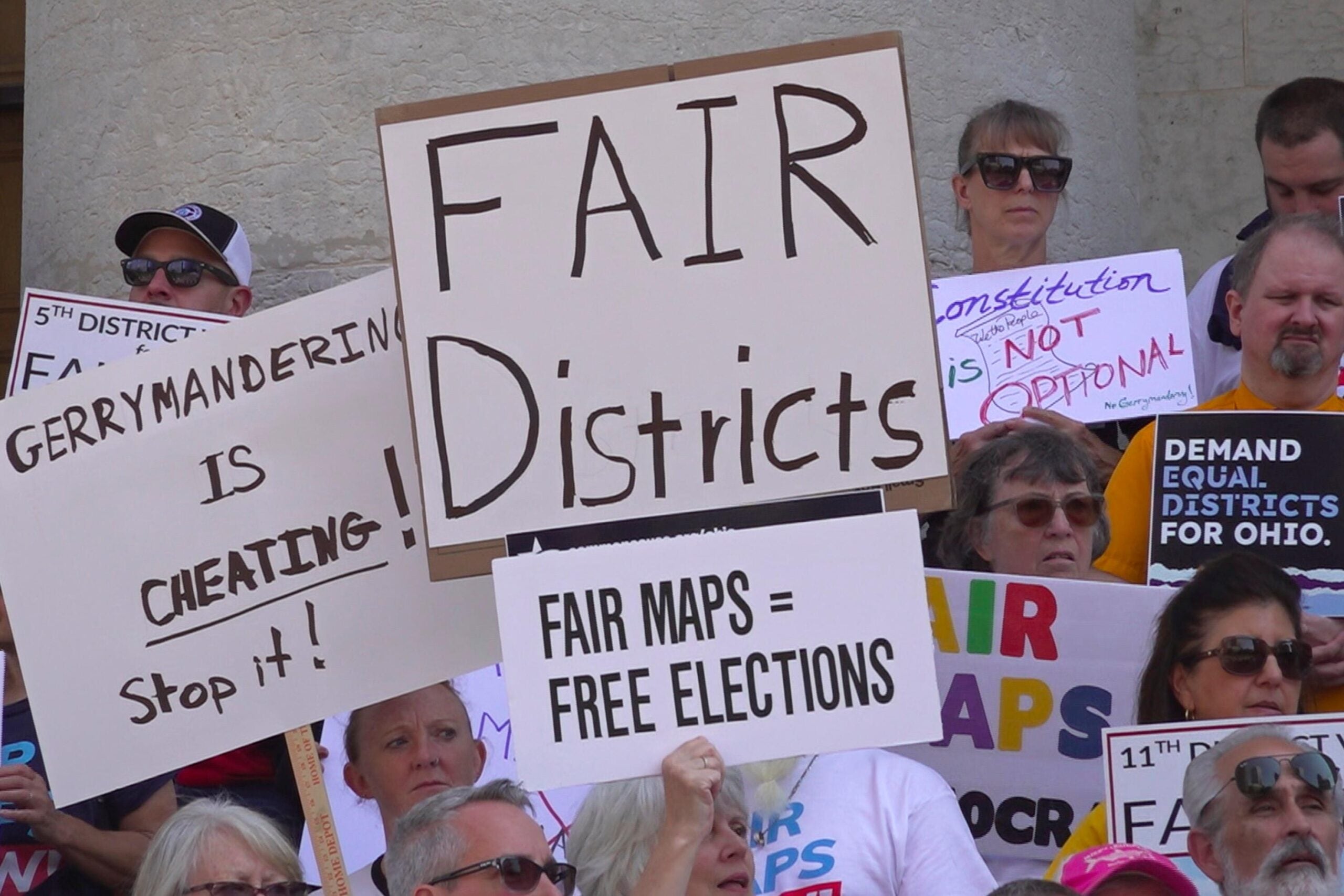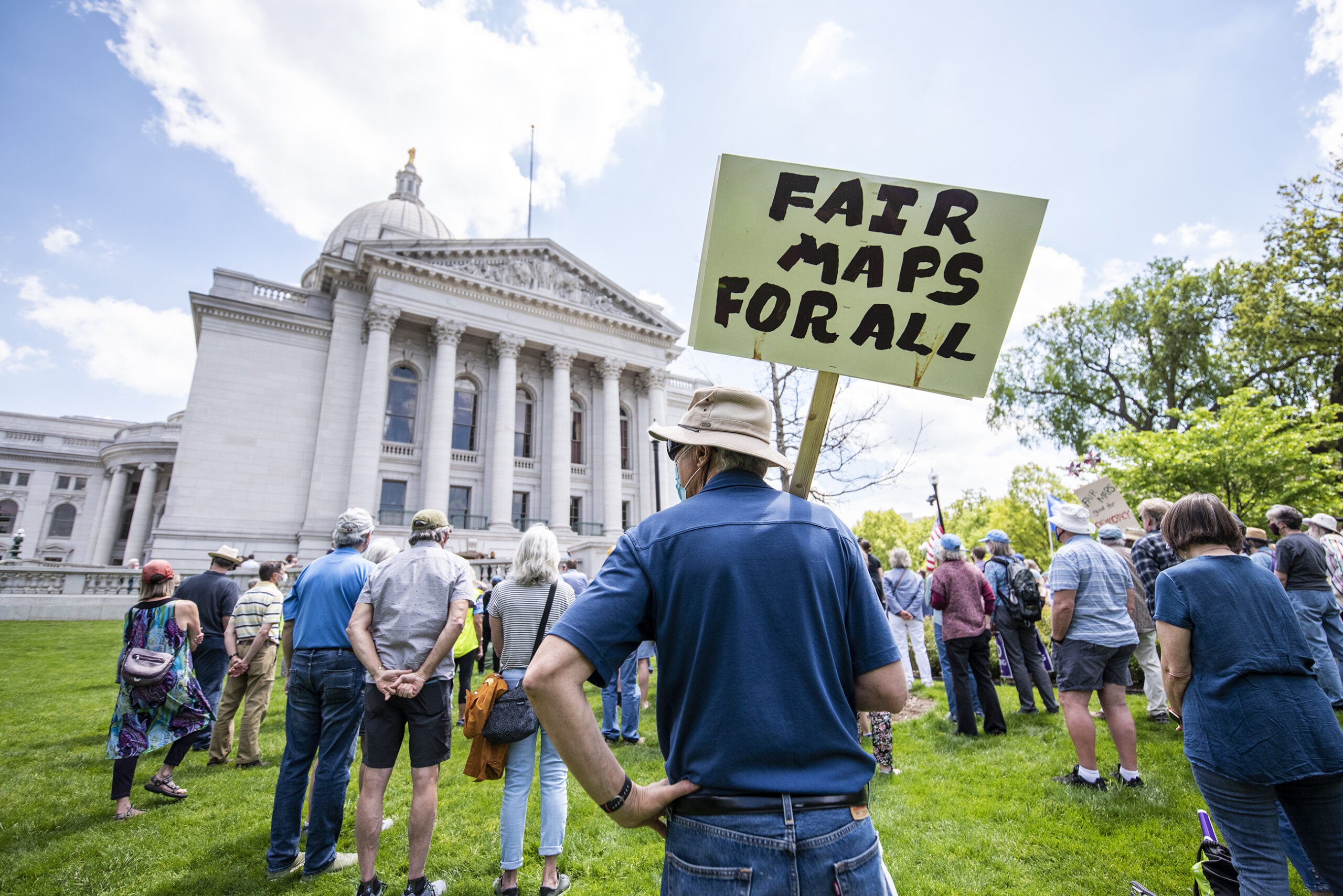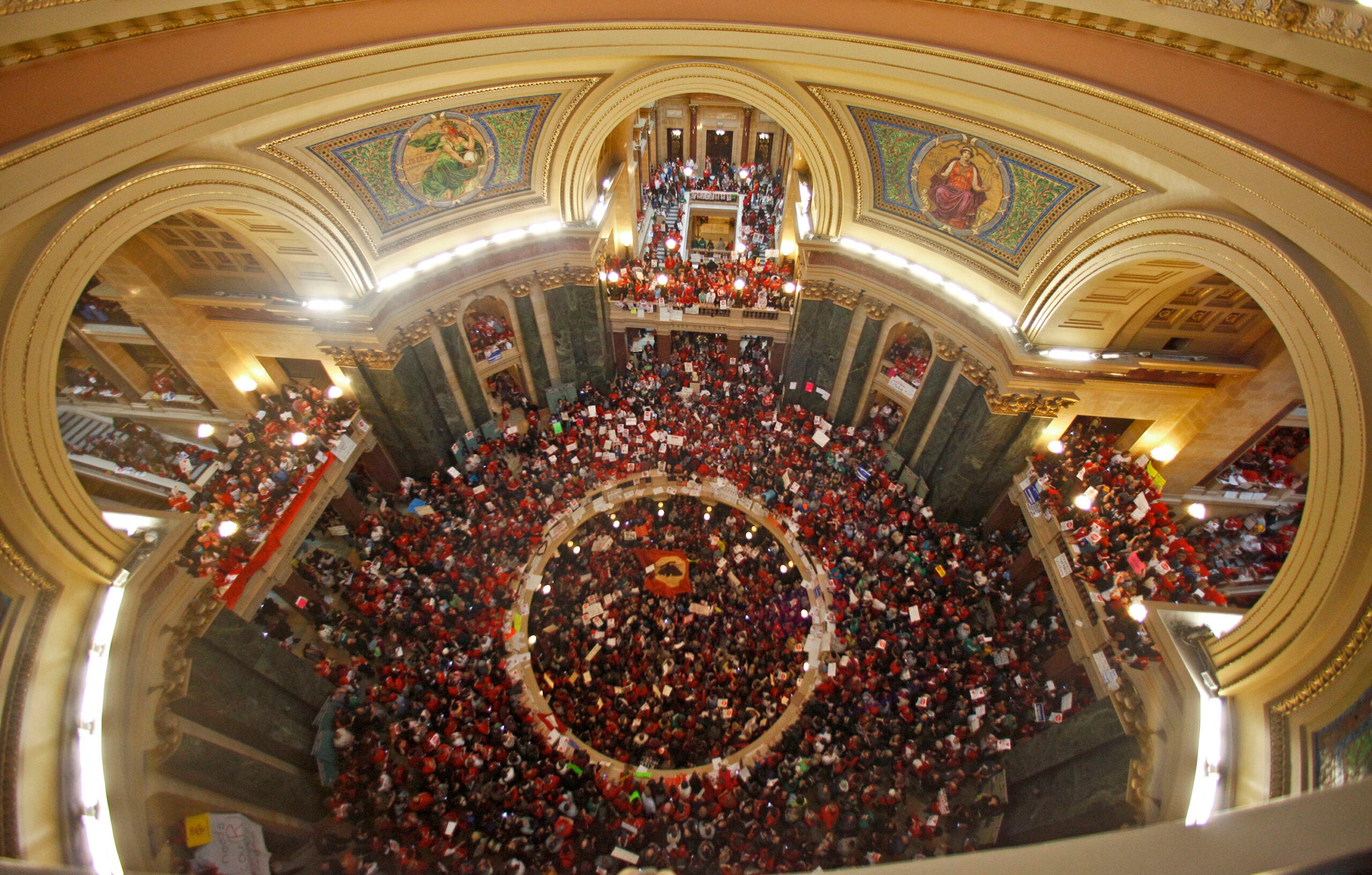It can be dangerous to predict what future historians might write about the political history of Wisconsin, but it seems like they might have a lot to say about the year 2011. Because in terms of state politics, that was the year that changed everything.
If you lived in Wisconsin in 2011 — and even if you didn’t — you might remember it was chaotic.
Scott Walker, a conservative Republican from Milwaukee County, had just been elected governor. About a month after he took office, he introduced his landmark plan that would decimate the state’s public employee unions.
It sparked weeks of intense protest. Tens of thousands of people showed up in downtown Madison for weeks. People literally took over the Capitol.

Protestors of Wisconsin Gov. Scott Walker’s bill to eliminate collective bargaining rights for many state workers pack the rotunda at the state Capitol in Madison, Wis., Thursday, Feb. 17, 2011. Andy Manis/AP Photo
But on the same day that the Wisconsin Assembly passed Walker’s labor law now known as Act 10, another event went largely unnoticed. The U.S. Census Bureau released a new set of data used to draw political maps.
During this chaos, work quietly began on one of the most consequential bills of the decade: redistricting.
A red map
Although the process began quietly, redistricting did not sneak up on people. It happens every decade after the Census. It was not a surprise.
But in 2010, people were focused on other issues. This was two years after President Barack Obama was elected. He had just signed the Affordable Care Act, and the Great Recession was still fresh on people’s minds.
There was a backlash against Democrats and the Republican base was fired up. GOP strategists were looking for ways to seize power.
In 2010, Republican strategist Chris Jankowski was running a national group called the Republican State Leadership Committee. While other groups focused on high-profile national races, Jankowski’s group focused on state races.
He knew state races mattered most of all that year, a year ending in zero, because whoever won would be in charge of redistricting.
Wisconsin Public Radio, © Copyright 2025, Board of Regents of the University of Wisconsin System and Wisconsin Educational Communications Board.





